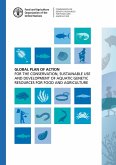Aquatic ecology has traditionally been split into separate marine and freshwater components which progressed more or less independently for over many years. This fundamental division is reflected in the way that the discipline is often taught, the two being treated as completely separate subjects, but it masks two very important features of aquatic systems: their incredible diversity, both in the variety of distinguishable habitat types and in the heterogeneity within a single water body. A major research initiative in aquatic ecology today, its emphasis upon the common properties underlying its diversity. In every field of aquatic ecology, while emphasising the diversity and unique features of the major aquatic habitats by treating them under separate chapter headings, we also show that the same underlying themes crop up again and again. It is our hope that it introduces enough of the excitement of aquatic ecology to stimulate further, more detailed study. We have tried to keep our explanations simple and wherever appropriate, to define the terms and ideas which the reader may come across elsewhere. Salient FeaturesCombines freshwater and marine ecology in a single introductory textCovers basic ecology, concentrating on community ecologyCross-referencing throughout plus glossary and an extensive indexWritten in an easily accessible format, the book can also be used as a quick reference guideEcology of Aquatic Management is an ideal text for undergraduates studying Aquatic Biology, Freshwater or Marine Biology within Ecology, Biology and Environmental Science degrees, and assumes no prior experience of aquatic systems. Some readers may find 'reference book' but trust that, for the majority of our target audience.
Dieser Download kann aus rechtlichen Gründen nur mit Rechnungsadresse in A, B, BG, CY, CZ, D, DK, EW, E, FIN, F, GR, HR, H, IRL, I, LT, L, LR, M, NL, PL, P, R, S, SLO, SK ausgeliefert werden.









